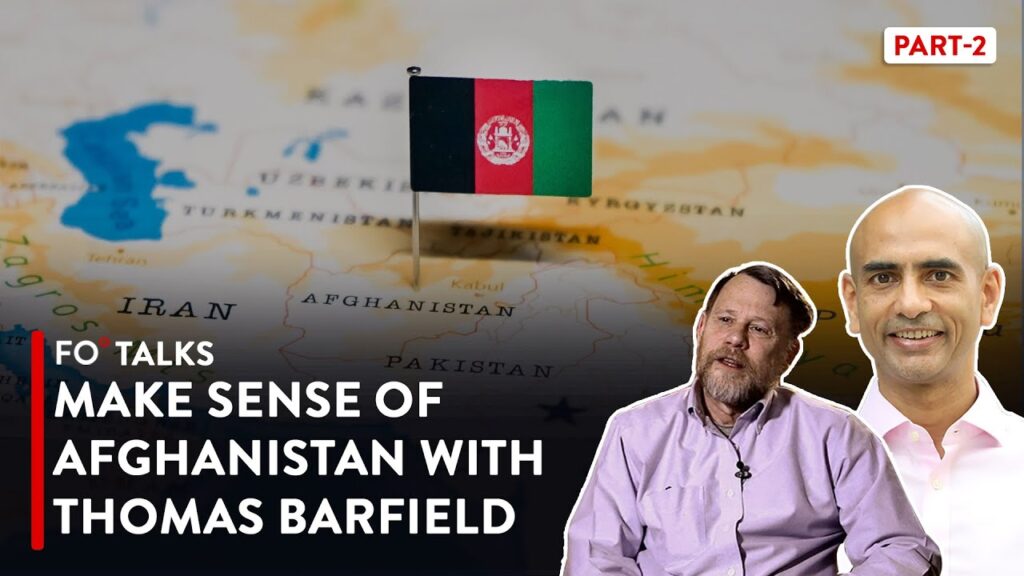The events of September 11, 2001, will forever be etched in the annals of history as a turning point in global geopolitics, especially in the Middle East. The terrorist attacks on the United States not only shattered the skyline of New York City but also sent shockwaves throughout the Middle East, reshaping its political, social and security landscapes. The US responses to 9/11 triggered a series of events that continue to reverberate in the region to this day and created a complex tapestry of successes and failures in American policy.
The fallout: Unintended consequences of US reaction
The 9/11 attacks were the deadliest foreign assault ever on US soil, claiming 2,977 innocent lives. At the time, President George W. Bush stated that while American freedom was under attack, the US would undoubtedly win the war that had been waged upon it. For Bush, the notion of American exceptionalism demanded a strong and resolute response to the unprovoked attacks in order to protect national security and prevent future acts of terrorism. The way the US went about its response, however, was deeply flawed and often counterproductive. The legacy of these flawed policies underscores the importance of thoughtful approaches to addressing complex global challenges.
In the immediate aftermath of the 9/11 attacks, the US launched its “War on Terror,” a multifaceted and global campaign aimed at dismantling al-Qaeda and preventing future terrorist threats. Two primary theatres emerged: Afghanistan and Iraq.
In Afghanistan, the US invasion aimed to remove the Taliban from power, disrupt al-Qaeda’s core leadership, eliminate terrorist sanctuaries and weaken its ability to conduct large-scale international attacks. While the initial phase of the war achieved these goals, the subsequent years witnessed a protracted conflict with unforeseen consequences. The US effort to stabilize Afghanistan struggled amid insurgency and regional power dynamics.
The primary rationale for the US invasion of Iraq in 2003 was the purported presence of weapons of mass destruction, but the invasion had broader implications for the region. The toppling of Saddam Hussein’s regime triggered sectarian strife and unleashed forces that Iraq struggled to contain for years to come.
One of the most significant and unintended consequences of the 9/11 attacks was the emergence of new extremist groups in the Middle East. Al-Qaeda, the terrorist organization responsible for 9/11, was not the only group operating in the region, but its audacious attack galvanized jihadists and set in motion a new wave of militancy. Afghanistan and Iraq became epicenters of violence and instability where new extremist groups could thrive. The region saw the rise ISIS and others who exploited the power vacuums created by the conflicts. These groups posed significant security threats not only in Iraq and Afghanistan but also globally.
Iran watched the developments in Afghanistan and Iraq with a mix of apprehension and opportunism. The fall of Saddam Hussein ultimately shifted the balance of power in Iraq in favor of that country’s Shiite majority. Iran sought to capitalize on this by cultivating Shiite militias and political groups in Iraq, effectively increasing its influence in the country. The Bush administration’s inclusion of Iran in the “Axis of Evil” further strained US-Iran relations. These tensions would later play a role in Iran’s pursuit of nuclear capabilities and regional proxy conflicts. Today, Iran remains one of only four countries the US has designated as a state sponsor of terrorism.
Hard lessons: Military choices undermine soft-power efforts
The US engaged in diplomatic outreach to build international support for its counterterrorism efforts. This involved seeking cooperation from regional and international partners, including NATO countries. However, trust issues and concerns about US motives hampered diplomatic efforts. The perception of US unilateralism and preemption in the Iraq War eroded trust among traditional allies and regional actors.
These trust issues spilled over to the battlefield. The US managed to form alliances such as the “Coalition of the Willing” to share the burden of combat operations and provide legitimacy to their interventions in Afghanistan and Iraq. When it came to delegating responsibility to its partners, however, the US chose to dominate the planning and execution of military actions. This approach led to the perception that the coalition was in name only.
The US invested in public diplomacy efforts to improve its image and engage with Middle Eastern populations after its invasions of Afghanistan and Iraq. These initiatives to win hearts and minds, promote American values and counter extremist narratives included cultural exchange programs, educational scholarships and English-language teaching. The US also sought to counter extremist narratives through various media outlets and information campaigns, including the creation of Arabic-language media such as the satellite television channel Alhurra and Radio Sawa. These outlets faced credibility issues and struggled to compete with established regional media organizations.
Doubts about US motives undermined the impact of many of these efforts, and this skepticism carried over to the superpower’s efforts to promote democratic governance and human rights in the region. The thinking behind the US policy was that addressing political grievances would help counter extremism; however, the efforts were met with accusations of hypocrisy, particularly because the US continued to support authoritarian regimes that were allies in the War on Terror. The absence of weapons of mass destruction also undermined the legitimacy of the Iraq War and fuelled anti-American sentiments across the Middle East, leading to protests and strained diplomatic relations.
One of the most controversial aspects of the War on Terror was the use of extra-legal renditions and enhanced interrogation techniques, including torture. Techniques such as waterboarding, stress positions and sleep deprivation were employed on detainees at various detention facilities, including Guantanamo Bay and Abu Ghraib in Iraq. These practices undermined the moral high ground the US sought to occupy, sparking global outrage with critics arguing that they violated international law and human rights standards.
Some Middle Eastern governments, particularly those with close ties to the United States, cooperated in the rendition of individuals suspected of terrorism. These countries allowed US intelligence agencies, including the CIA, to detain and transport individuals through their territory or airspace. This cooperation often raised concerns about complicity in practices that violated international human rights standards, including the use of torture. Jordan, for example, was used as a transit point for the rendition of suspected terrorists. Jordanian intelligence agencies were known for their involvement in interrogations that raised concerns about torture and human rights abuses.
The legacy of the 9/11 campaigns: Human suffering and moral failure
The prolonged military presence in Afghanistan and Iraq reinforced a militarized approach to counterterrorism, which inadvertently led to collateral damage and civilian casualties. The wars led to widespread displacement, with millions of Afghans and Iraqis forced to flee their homes. Internally displaced persons and refugees faced dire conditions, lacking access to basic necessities and enduring harsh living conditions. Between 2002–2003, public opinion of the US was less favorable in the Middle East than elsewhere around the world. By 2022, regional opinion polling found that more than half the respondents agreed that the United States has become an unreliable partner and that the region should reorient its attention towards Russia and China as partners.
The human cost of post-9/11 war zones is estimated to be nearly 4.6 million causalities. While the figure represents an approximation that includes both direct casualties as a result of war, many others — especially children — lost their lives due to the reverberations of war, including devastation brought on by economic impacts and the spread of diseases.
The wars in Afghanistan and Iraq also resulted in significant casualties among US military personnel. Over seven thousand American soldiers lost their lives in post-9/11 war operations, while many more were wounded in combat operations. Deployments to combat zones also took a toll on the mental health of US service members. The exposure to combat stress, traumatic experiences and multiple deployments contributed to high rates of PTSD and other mental health issues among returning veterans.
The US Department of Veterans Affairs, responsible for providing healthcare and benefits to veterans, faced challenges in meeting the needs of a large and growing veteran population. Reports of long wait times, inadequate mental health services and bureaucratic inefficiencies raised concerns about the quality of care provided. From 2001-2011, the US government spent nearly $31.3 billion providing medical care and disability benefits for nearly 650,000 Iraq and Afghanistan war veterans as a result of injuries sustained during their tours.
Given all this, it is imperative that US policymakers internalize the profound lessons offered by the flawed foreign policies following 9/11. These lessons underscore the need for nuanced, well-considered approaches that prioritize diplomacy, international cooperation and respect for human rights as fundamental cornerstones of effective global engagement. Dealing with terrorist attacks presents an inherently challenging landscape, one where policymakers must resist ideological rigidity and instead adopt pragmatic, thoughtful strategies.
The complexity of the modern world demands a flexibility of thought and an openness to nuanced solutions that can adapt to the evolving nature of global threats. Such an approach acknowledges that while security remains paramount, it should not come at the expense of civil liberties, human rights or long-term stability. Achieving a balance between security and the preservation of democratic values is a delicate but essential task for policymakers navigating the post-9/11 world.
The views expressed in this article are the author’s own and do not necessarily reflect Fair Observer’s editorial policy.
Support Fair Observer
We rely on your support for our independence, diversity and quality.
For more than 10 years, Fair Observer has been free, fair and independent. No billionaire owns us, no advertisers control us. We are a reader-supported nonprofit. Unlike many other publications, we keep our content free for readers regardless of where they live or whether they can afford to pay. We have no paywalls and no ads.
In the post-truth era of fake news, echo chambers and filter bubbles, we publish a plurality of perspectives from around the world. Anyone can publish with us, but everyone goes through a rigorous editorial process. So, you get fact-checked, well-reasoned content instead of noise.
We publish 2,500+ voices from 90+ countries. We also conduct education and training programs
on subjects ranging from digital media and journalism to writing and critical thinking. This
doesn’t come cheap. Servers, editors, trainers and web developers cost
money.
Please consider supporting us on a regular basis as a recurring donor or a
sustaining member.
Will you support FO’s journalism?
We rely on your support for our independence, diversity and quality.









Comment